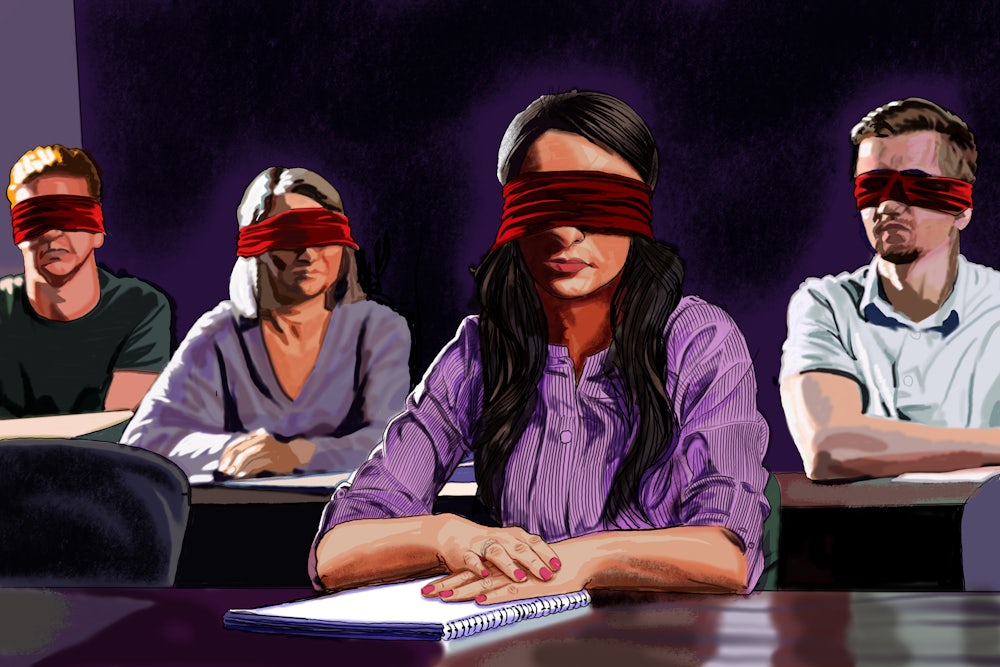Under its autocratic Prime Minister Viktor Orbán, Hungary introduced in early 2020 a new National Core Curriculum. The curriculum presents Hungarian literature as the literature of ethnic Hungarian populations, even those living outside of the borders of the state of Hungary after the Treaty of Trianon created present-day Hungary in 1920, sowing national resentment similar to that in post–World War I Germany after the Treaty of Versailles led to the loss of German land and colonies. The course includes thematic studies of topics like the Treaty of Trianon in Hungarian literature.
Besides evoking nostalgia and resentful longing for a “Greater Hungary,” it pointedly excludes the work of Imre Kertész, Hungary’s only Nobel Prize winner for literature, surrendering a national point of pride in order to erase the contributions of a Jewish survivor of the Holocaust. And it adds to the core curriculum Ferenc Herczeg, a minor right-wing nationalist playwright who was celebrated and praised by Miklós Horthy, the World War II Hungarian leader who brought about an alliance between Hungary and Nazi Germany. Previous revisions of the core curriculum in prior Orbán administrations had already elevated similar minor writers into the pantheon on an obvious political basis, such as József Nyírő, a member of Parliament for the fascist Hungarian Arrow Cross Party, who harbored a passionate hatred of Jews. The new curriculum presents far-right Hungarian nationalist leaders of the past as heroes.
The revamping doesn’t end there. In May 2022, Orbán reorganized his administration to place education under the jurisdiction of the Ministry of Interior, which is responsible for maintaining order through law enforcement. A few months later—shortly after declaring that Hungary would not become a “mixed-race” country—Orbán was featured as a main speaker at the Conservative Political Action Conference, or CPAC, in Dallas, where he was greeted by American conservatives with a standing ovation. In March 2024, Orbán visited the Heritage Foundation for a private event. The next day, he was fêted by Donald Trump at Mar-a-Lago.
Viktor Orbán is a darling of today’s GOP. But Americans do not need to look abroad to find their own versions of educational authoritarianism. Toni Morrison, like Imre Kertész, is a Nobel Prize winner in literature. Beloved, Morrison’s most famous novel, concerns the horrors of slavery. It became the subject of controversy in Virginia, an infamous slave state from its Colonial days until the Civil War; parents targeted the book as obscene. In 2016, the Virginia state legislature passed what colloquially came to be called the “Beloved bill.” It would have allowed parents to request that any material they deemed to have sexually explicit content be replaced by other material. As in Hungary, the bill would have effectively removed the book from any required curriculum in Virginia. Virginia’s governor at the time, Democrat Terry McAuliffe, vetoed the bill. But in Virginia’s gubernatorial election of 2021, McAuliffe went down to defeat by Republican Glenn Youngkin, who ran on a platform of “parents’ rights,” such as the right to have their children not be exposed to books that might make them uncomfortable.
Like Kertész in Hungary, Morrison in the United States is a member of a national minority whose work reminds others of that group’s painful journey through the nation’s history. This kind of work is uncomfortable for many readers. Those who seek to view the nation’s past through rose-colored glasses, diminishing or erasing its national sins, whether for the sake of self-aggrandizement or something else, will have strong negative reactions.
Today’s GOP is laser-focused on education, trying to frighten parents about supposed “Marxist indoctrination” in schools and universities (a common tactic in today’s fascist international; see Brazil under Jair Bolsonaro). As a sign of the topic’s importance, the GOP campaign against schools and universities was central in Trump’s 2020 election bid. In a speech at an event called the White House Conference on American History, Trump declared:
Students in our universities are inundated with critical race theory. This is a Marxist doctrine holding that America is a wicked and racist nation, that even young children are complicit in oppression, and that our entire society must be radically transformed. Critical race theory is being forced into our children’s schools, it’s being imposed into workplace trainings, and it’s being deployed to rip apart friends, neighbors, and families.
The tactic of painting all of one’s political opponents as Marxists and communists, and claiming that they dominate the institutions, is a hallmark of the classic European fascist regimes of the mid–twentieth century. Today, it is employed as a justification to fire teachers and professors and replace them with loyalists and ultranationalists. Even a democratic nation’s greatest universities are not immune from being destroyed by this strategy, as one can see in India today. Now and in the past, schools and universities are and have been central targets of fascism. Attacks on education, including political works deemed obscene, are, to use a cliché, canaries in the fascist coal mine.
Education in a liberal democracy introduces students to the diverse perspectives through a nation’s history, in order for people to foster a kind of empathy and understanding for one another; what my father in his work called civic compassion. Democracy is a system where we let ourselves be affected by our fellow citizens’ perspectives. Cutting students off from exposure to the perspectives of their neighbors therefore preempts democracy. Such erasures are more conducive to an education for authoritarianism, where an autocratic leader can more easily set groups against one another, relying on mutual estrangement and mutual misunderstanding. “Parents’ rights” is an expression used to cover for an illiberal public culture. Using the language of rights and freedoms to erase oppressed groups’ perspectives is a familiar vocabulary trick from America’s past (“states’ rights”).
Florida Governor Ron DeSantis, a graduate of Yale and Harvard universities, has specifically targeted schools and colleges, denouncing the supposed “indoctrination” of Florida’s students. The state legislature and Department of Education have brought in Hillsdale College, an institution in Michigan, to advise on Florida’s K-12 curriculum.
Hillsdale advertises itself as providing a “classical education” and a nonideological counterpart to current educational practices. In assessing this claim, it is instructive to turn to Hillsdale College’s website, which lists the online courses offered by the institution. Alongside offerings like Introduction to Aristotle’s Ethics: How to Lead a Good Life, The History of Classical Music: Pythagoras Through Beethoven, and Introduction to Western Philosophy, Hillsdale offers courses with titles like The American Left: From Liberalism to Despotism and American Citizenship and Its Decline, whose message is that “wokeness” is an existential threat to the United States. The message of these course offerings is clear: From the perspective of the classical tradition, progressivism is tyranny. One wonders if Hillsdale’s Introduction to Western Philosophy mentions that it was Plato who recommended, well before Marx, that children be removed from their families to be raised by the state (and that homosexual relationships between teachers and their students were regarded as quite normal in the era the curriculum regards as “classical”).
In 2023, Florida, Oklahoma, and Montana approved the use of videos from the conservative media group PragerU as educational material for their schools. In its video A Short History of Slavery, far-right commentator Candace Owens declares, “White people were the first to formally put an end to slavery,” adding that “white men led the world in putting an end to the abhorrent practice [of slavery].” Owens’s remarks entirely erase the history of Haiti, whose slave revolution resulted in its leader, Toussaint Louverture, ending slavery decades before Britain did, let alone the United States. Owens also returns the teaching of the Civil War to a period before W.E.B. Du Bois’s magisterial 1935 work, Black Reconstruction. In that era, the major contributions of Black people to the Union’s victory in the Civil War (both as soldiers and as rebellious enslaved people behind enemy lines) were entirely erased, and Black Americans were represented as passive recipients of the gift of freedom.
Looking at these course offerings, one might reasonably object to the claim that Hillsdale College and PragerU are freeing schools from indoctrination.
The American Association of University Professors’ report on “Political Interference and Academic Freedom in Florida’s Public Higher Education System,” published in December 2023, describes the effects of DeSantis’s targeting of universities, including the state takeover of an outstanding public liberal arts school, the New College of Florida. It begins with a quote from LeRoy Pernell, a law professor at Florida A&M, which reflects the general tenor of the extensive report and, more generally, the sense of despair under a regime of educational authoritarianism:
What we are witnessing in Florida is an intellectual reign of terror. There is a tremendous sense of dread right now, not just among faculty; it’s tangible among students and staff as well. People are intellectually and physically scared. We are being named an enemy of the State. The events at Jacksonville too, feel real, and people feel it could happen to them.
The raft of laws restricting teaching, entailing everything from disciplinary sanctions to threats of job loss, has also hit K-12 teachers incredibly hard. The laws have created significant fear around teaching topics in U.S. history, especially Black history. In general, the laws have created a climate of fear and intimidation surrounding discussion of problems with the old hegemonies of race, class, and gender.
Bringing educators under gradually more and more intrusive laws restricting their freedom creates a general climate of fear and intimidation. When such laws target anyone who challenges the greatness of a nation, or its heroes, it’s not a positive sign for democracy.
Trump has made it abundantly clear that a far-right attack on education will be central to his new administration from its beginning, promising to “sign a new executive order to cut federal funding for any school pushing critical race theory, transgender insanity, and other inappropriate racial, sexual, or political content on our children” on day one of his administration. Eliminating the Department of Education is a goal of Project 2025, along with many other changes that would dramatically reduce the federal government’s ability to intervene on potential civil rights violations. The honest teaching of Black history and protections for LGBTQ youth will be illegal in K-12 education. The American university system is the crown jewel of the world’s higher education system. As far as it is possible, a Trump-led federal government will seek to transform it radically at all levels, with Hillsdale College as its model. The intent is the burying of any civic compassion in the educational system.




